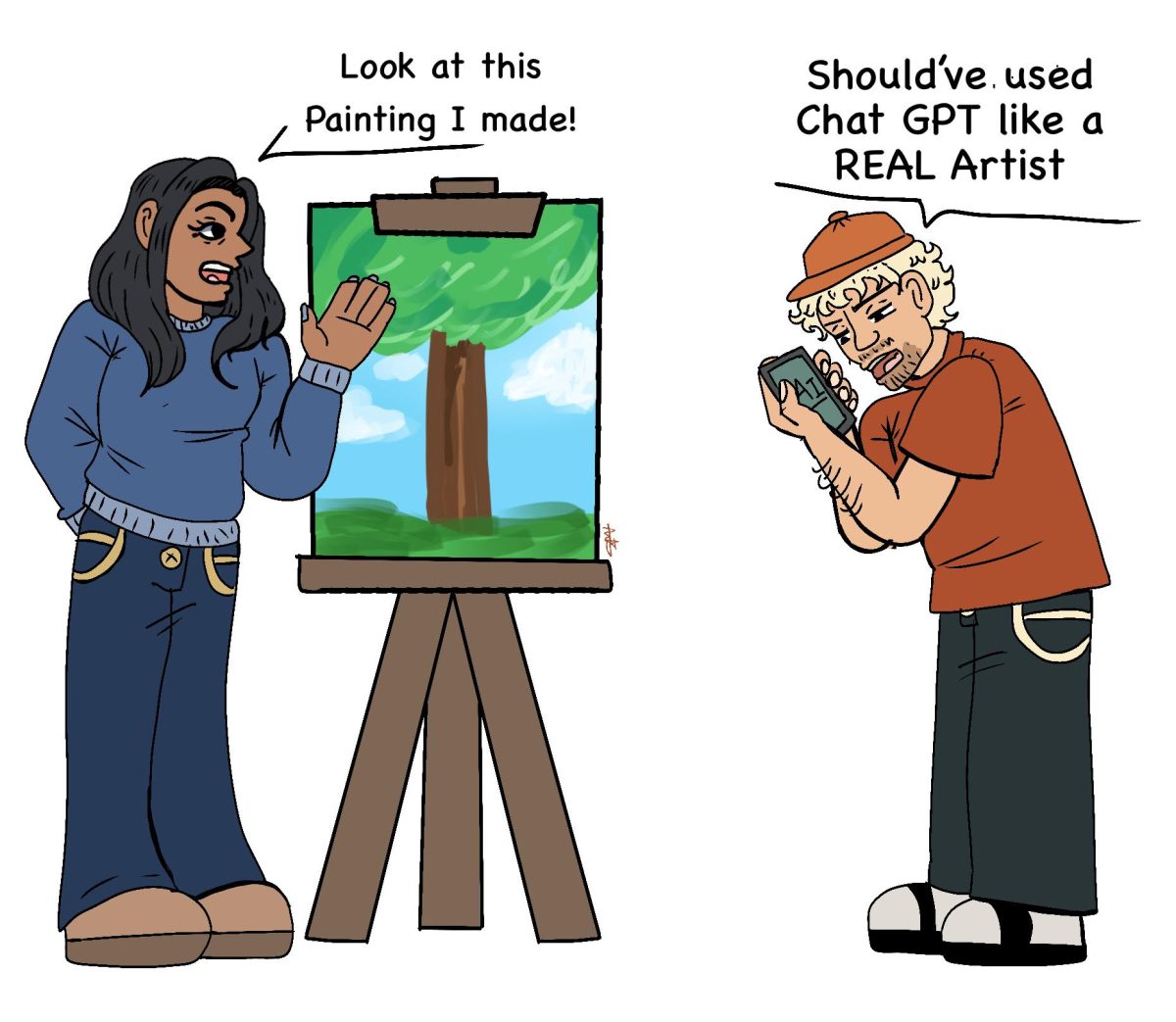We juniors recently got our SAT scores back, and the hallways are buzzing with anxiety. Whether someone scored a 1500 or a 950, there’s one unspoken truth we’re all facing: we’re being judged not on our intelligence, but on how well we can play a game—a timed, stressful, and unfair one.
The SAT looms over us like a final boss in a video game—high-stakes, all-or-nothing, and completely out of sync with the way we actually learn.
It reduces our years of hard work and growth into a single number. One sitting. About four hours. Twenty-something reading and math questions, a whole writing portion, and a countdown clock. There’s no room for second-guessing. And barely time to breathe.
Standardized testing, and the SAT in particular, doesn’t measure actual intelligence. It measures how quickly a student can adapt to an artificial format. Intelligence is creative, flexible, and diverse. It lives in a student’s curiosity, their ideas, and their ability to grow.
The SAT captures none of that.
Instead, it rewards students who can afford expensive preparation classes, who’ve had years of academic stability, and who naturally excel under pressure.
And that’s where it gets even more unfair.
The College Board, the company behind the SAT, insists the test is an “equalizer.” But studies have repeatedly shown otherwise. In a study published by the Brookings Institution, SAT scores were shown to correlate strongly with household income. Students from families earning over $200,000 a year averaged 388 points higher than those from families making less than $20,000. That’s not an equalizer…it’s a wealth detector.
Even in a test-optional world, many top colleges continue to give weight to SAT scores, subtly or directly. So, we stress and second-guess our self-worth based on a number. Even knowing it doesn’t define us doesn’t stop the anxiety, because we know it still might define our future.
Critics of this perspective argue that without something like the SAT, colleges would rely more heavily on GPA, extracurriculars, or recommendation letters, which can also be biased. And to be fair, they have a point: not all high schools offer the same opportunities. But replacing one flawed system with another doesn’t make either of them okay.
If the SAT is our answer to subjectivity, then we’re asking the wrong question. Colleges should be looking at potential, not perfection. They should be looking for thinkers, not test-takers. A student who builds a robot out of scraps or writes poetry in three languages has demonstrated far more than someone who can guess the right answer on a reading passage about 18th-century literature in under 70 seconds. And the idea that one four-hour session can define who gets a seat at the table of higher education is not only outdated, but absurd.
There are better ways. Schools like the University of California have already eliminated SAT and ACT scores from admissions entirely. And guess what? They’re not collapsing into chaos. Instead, they’re discovering students who may have been overlooked by a test score. Students who bring fresh perspectives, unique talents, and untapped potential. That’s the kind of future higher education should be building.
Standardized testing only fuels this fire. The pressure, the stakes, the time constraints—all of it creates an environment where students are expected to perform like machines, not humans.
We need to rethink what we value. If college is about discovering who we are and what we can become, then our admission process should reflect that. The SAT isn’t just outdated, but it’s misaligned with what education is supposed to be.
So yes, we’re all stressed. We’re all questioning: Is my score enough? Will it hurt me? What if I just needed five more minutes? But we need to remember that this test doesn’t define us. And it’s time colleges stop pretending it does.

















